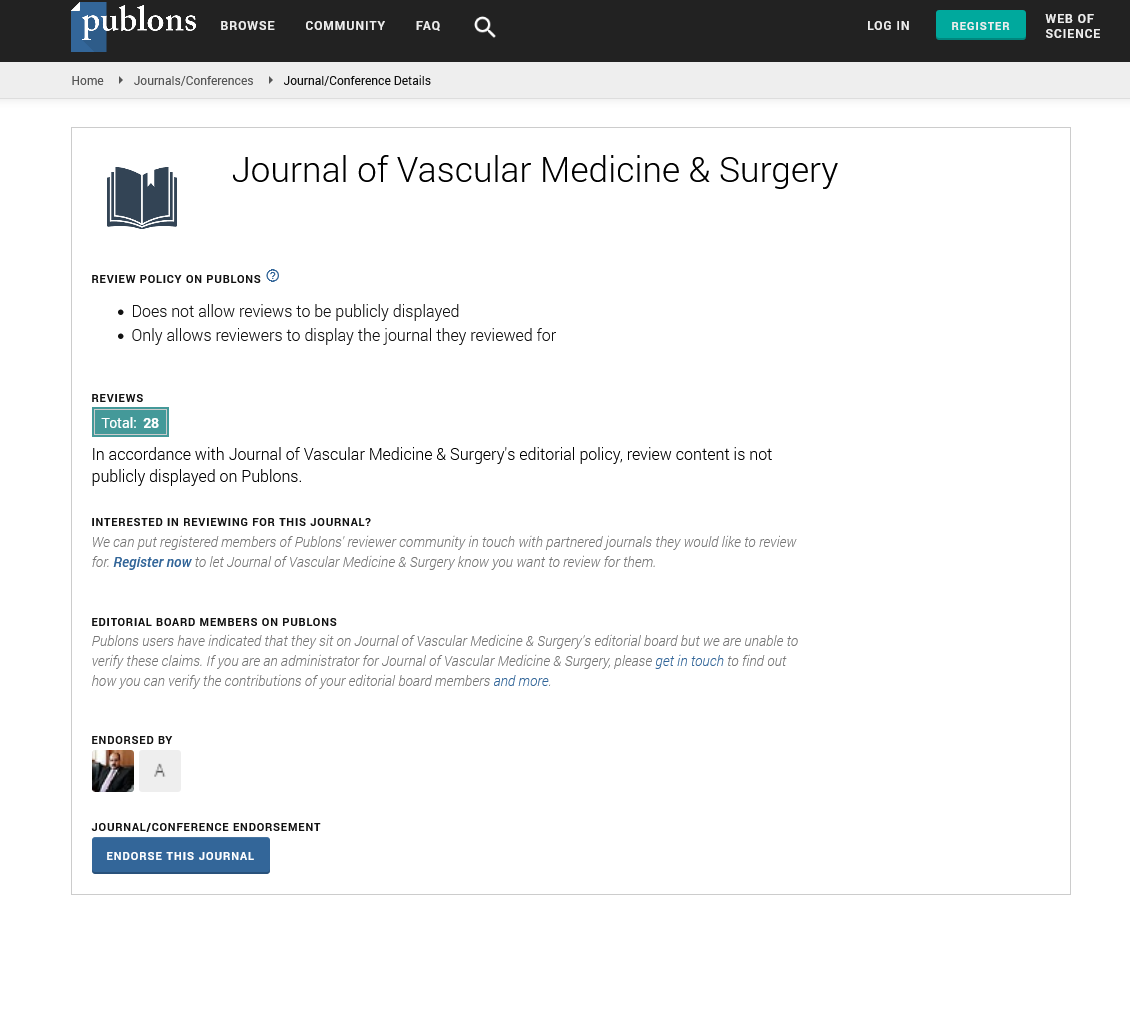Indexed In
- Open J Gate
- Academic Keys
- RefSeek
- Hamdard University
- EBSCO A-Z
- OCLC- WorldCat
- Publons
- Euro Pub
- Google Scholar
- SHERPA ROMEO
Useful Links
Share This Page
Journal Flyer

Open Access Journals
- Agri and Aquaculture
- Biochemistry
- Bioinformatics & Systems Biology
- Business & Management
- Chemistry
- Clinical Sciences
- Engineering
- Food & Nutrition
- General Science
- Genetics & Molecular Biology
- Immunology & Microbiology
- Medical Sciences
- Neuroscience & Psychology
- Nursing & Health Care
- Pharmaceutical Sciences
Abstract
Effects of Closed Vs. Open Repeated Endotracheal Suctioning During Mechanical Ventilation on the Pulmonary and Circulatory Levels of Endothelin-1 in Lavage-Induced Rabbit ARDS Model
Hideaki Sakuramoto, Subrina Jesmin, Nobutake Shimojo, Junko Kamiyama, Ken Miya, Majedul Islam, Tanzila Khatun, Satoru Kawano and Taro Mizutani
Background: A growing body of evidence demonstrates discretely the difference of open endotracheal suctioning (OES) and closed endotracheal suctioning (CES) on the respiratory and hemodynamic parameters in acute respiratory distress syndrome (ARDS). Endothelin-1 (ET-1), a mediator of vascular inflammation, cell proliferation, and fibrosis in addition to being a potent vasoconstrictor has been potentially implicated in the pathogenesis of ARDS. Here, we investigated the effects of repeated OES vs. CES during mechanical ventilation on circulatory and pulmonary levels of ET-1 in ARDS. Methods: Briefly, 22 Japanese White Rabbits were intubated with a 3.5-mm endotracheal tube. Normal saline was instilled into lung and washed mildly. After instillation, rabbits were ventilated at definite setting; OES and CES duration was for 6 hours and performed every 30 minutes from protocol start. Results: At circulatory level, either OES or CES did not alter plasma ET-1 level compared to the ET-1 level in ARDS before the initiation of endotracheal suctioning (OES 4.7 ± 1.3 pg/ml vs. CES 4.8 ± 1.5 pg/ml, p=0.839). In contrast, pulmonary ET-1 level was significantly higher in CES group compared to OES group after 6 hours of repeated suctioning in ARDS (OES 26.9 ± 2.2 pg/mg vs. CES 29.9 ± 3.3 pg/mg, p=0.018). This change in pulmonary ET-1 level could maintain a parallel relation with PaO2 level. Conclusion: At this moment, we cannot clarify the mechanism and effects of the observed change in ET-1 in a rabbit model of ARDS as well as its clinical impact.

